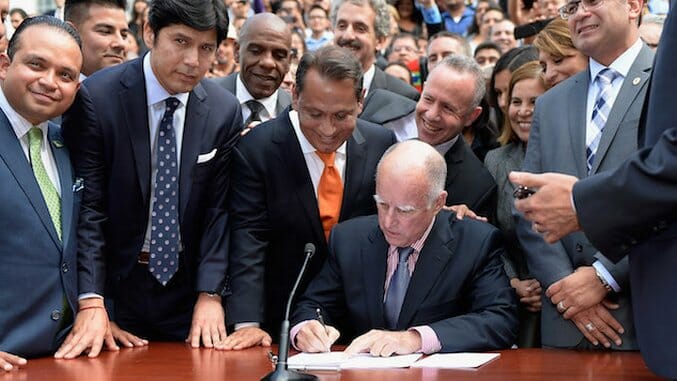Even as Republicans borderline-illegally strive to push through their rushed and dangerous healthcare bill, the biggest inhibitor to true universal healthcare may be Democrats themselves. The Democratic party has an opportunity themselves as a united front in opposition to the Republican’s unpopular bill, but it’s obvious that Democrats remain deeply divided.
Last week, California Democratic state Assembly Speaker, Anthony Rendon, rallied several Democratic corporate donors to block a Democrat-sponsored bill intended to create a single payer, universal health care program. This in a perpetually blue state where the government already covers 70 percent of the total healthcare bill, IBT reports.
Renton continues to publicly support the idea of single-payer, but has yet to see a bill he can support. According to Renton:
As someone who has long been a supporter of single payer, I am encouraged by the conversation begun by Senate Bill 562… senators who voted for SB 562 noted there are potentially fatal flaws in the bill, including the fact it does not address many serious issues, such as financing, delivery of care, cost controls, or the realities of needed action by the Trump Administration and voters to make SB 562 a genuine piece of legislation.
Unsurprisingly, IBT also reports that California Democrats have received significant donation money from groups that don’t support the bill. For his part, Renton himself has accepted over $100,000 in donations from pharmaceutical companies with another $50,000 from major health insurance companies. The party itself received over $2 million in donations from pharmaceutical and health insurers.
The entire situation reveals one of the primary reasons Democrats can’t manage to win anything. While there is a significant progressive contingent in the party best represented by Bernie Sanders, there’s also a much more conservative element tied closely to business interests—potentially before its constituents. Until those differences are resolved, it’s hard to imagine such a divided party ever truly gaining much political traction on this—or really any—major issue.
